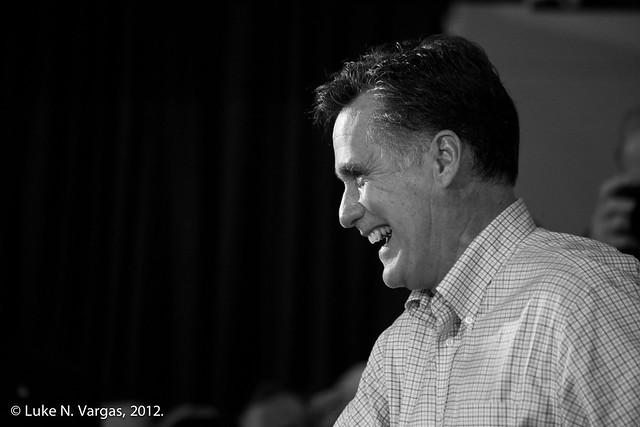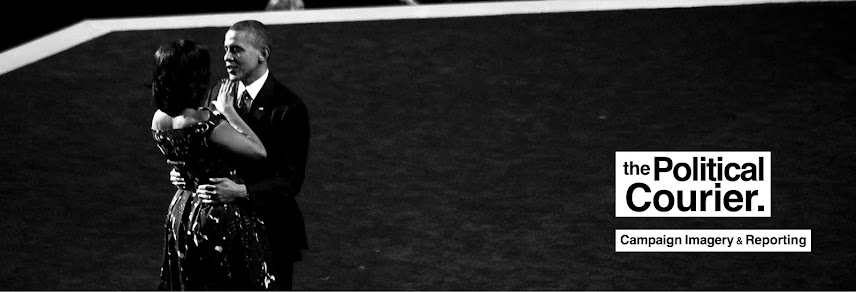I'm in Washington D.C. Friday and Saturday for the Conservative Political Action Conference. Check out my commentary below and a Twitter stream further down the page:
Saturday, 3:50 PM: Occupy Wall Street v. Tea Party
Oh boy, the rhetoric's really heating up during this panel. I'm cutting together a short video of highlights + will post it later. Lots of yelling, name calling, etc.
Saturday, 3:00 PM: "Why Am I Living in my Parent's Basement?" Recap
"You owe it to your philosophy to know how to win." — Abigail Alger, Leadership Institute
Some tips from the panel of young conservative leaders:
If a government regulation has shut down an employer near you, invite that employer to your campus as a guest speaker.
Embark upon a "Rescue Mission for Conservative College Students" and help find a buddy for persecuted conservative friends on your campus.
And finally, follow the "Campus Conservative Battle Plan," which includes going around campus and asking liberals if they'd be willing to redistribute their GPA to lower-performing students. When they say no (or more likely, are baffled by this question), you've apparently exposed the grand hypocracy behind graduated taxes.
Huh...
Saturday, 2:15 PM
Breaking news: Just picked up a glossy pair of colorful Ronald Reagan and Sarah Palin posters.
Saturday, 1:45 PM: CPAC 2012 Job and Internship Fair
I had a great time interviewing conservative employers and prospective employees both young and old earlier today. Takeaways:
At the college level there's a large talent pool of well-qualified applicants, many with double-majors and extensive political experience. One organization offering three unpaid internships in communication, government affairs, and policy analysis noted that 1/3 applicants were
law school graduates: "overqualified is the name of the game these days."
One representative from FIRE (The Foundation for Individual Rights in Education) had some advice for young folks looking for a job and insights into trends among applicants: "I see a lot of people daisy chaining internships," and he warned against "having
any dead areas on a resume, even if that means taking a job at Starbucks."
High school senior Alvaro Gabriel, who I spotted introducing himself to a number of employers and donning a Rick Santorum sticker on his suit, was well aware of the challenges ahead in the job market, but he was far from discouraged. His plan for the coming years: the Air Force Academy, an engineering degree, and law school. Keep an eye on this guy!
Saturday, 10:05 AM: CPAC Friday Wrap Up
Romney is probably in command, despite what was an underwhelming speech (that included a
particularly awkward phrase: “I was a severely conservative Republican governor”) but hell, they all are, so what's changed?
Gingrich assailed the GOP establishment and explained that CPAC was created as a way to push back
against the establishment, but the crowd hardly gobbled up that statement. CPAC doesn't mirror the opinions of voters in states like South Carolina or Minnesota, but the trepidation expressed for Gingrich's anti-establishment remarks was palpable, subtle though it was.
Much has been made of a "brokered convention" in which delegates face inconclusive results from the state primaries and will have the opportunity to chose which of the four men still running they like the most.
Yesterday at CPAC brought some clarity to how that long-shot convention transpire: Without a doubt, convention gridlock would not result in Gingrich capturing the nomination. I won't shirk from this point, despite what a small army of Newt supporters told me yesterday: Newt won't win the nomination
if the decision is left to the delegates in Tampa.
Saturday, 9:35 AM: Gingrich Recap
Callista Gingrich starring in one of her first speaking roles was a fortuitous beginning to her husband’s CPAC showing yesterday.Callista's diction was crisp, she was straightforward yet subdued, a fitting foreshadowing of Newt’s speech at a time when his candidacy very much needs a shot of energy.
Truth be told, I expected a more enthusiastic reception for Gingrich at CPAC, but then again the loud PA music (
Joe Satriani’s “Just Like Lightnin’”) with its thumping bass made it hard to tell exactly how the crowd felt.
It’s not that Gingrich didn’t try. At certain points in his remarks — for example, after listing each of three pieces of Obama-era legislation he intends to repeal — he paused to let the audience voice their approval. They largely obliged, but it was a deviation of style for an orator who typically plows ahead through his talking points and let his crowds work themselves up for an opportunity to jump in and cheer him on. This conscious attempt at conditioning the ballroom audience through a series of applause lines was as telling an indicator of Gingrich’s current support among conservatives that I’ve seen in recent weeks.
Gingrich
did draw favorable responses on his lines about “abolishing Obama’s White House tsars” and “repudiating” the President, but there was a striking absence of enthusiasm, and if these are the main points that conservatives want to hear, they don’t need Gingrich to be the one to articulate them.
Friday, 3:50 PM: "Video Activism" Tutorial
Can conservatives reverse the political satire deficit being suffered at the hands of comedians Stephen Colbert and John Stewart? Oliver Darcy and the Leadership Institute think so, and the group is conducting a CPAC seminar educating up and coming YouTube-minded activists how to record and edit footage "highlighting how crazy they [liberals] are" as a way of "effectively pushing forward the conservative message."
Another speaker, Adam Kissel, is now at the microphone warning of certain state laws that mandate both parties in a conversation are aware of being taped.
Compared to my NYU course in "First Amendment Law and Journalism Ethics" this seminar
rounds some of the corners of media law, but on the heels of wildly successful gotcha journalism by activists like James O'Keefe, the message is clear: the conservative movement has benefited greatly in recent years by exposing "liberal bias" — particularly on college campuses — and with so much to gain, there's a premium on quantity over textbook journalistic ethics.
Friday, 2:30 PM: Romney Recap
Romney spoke to the record, not directly to the CPAC crowd.
There was little semblance of a logical progression to Romney's policy pledges; after addressing Planned Parenthood and "innocent life" it was on to his assertion that America's military was the most powerful in the world. It was as if Romney had responded to criticism by some conservatives that he'd been short on details in recent speeches by keeping a notepad next to his bed, adding whatever red meat talking points came to mind.
The contrast with Santorum in this regard is clear. Santorum constructed a strong argument for his positions against government interference, concluding his speech with a powerful command: "Put your honor on the line [for me]."
Romney's message in a nutshell: What's so wrong with me?
Friday, 12:55 PM: Santorum Recap
Santorum succeeded in communicating that election is about more than financial advantages or, more specifically, Mitt Romney's inevitability narrative.
It's curious how little space has existed between the rhetoric of Santorum and Romney on the role of government and personal liberty, but Santorum's riff today on the risks of allowing government to "give rights" — they can be taken away, can be used as a coercive tool, etc. — was a fresh and effective approach in appealing to conservative fears.
Romney is taking the stage now...
Despite being bashed quite frequently by panelists yesterday, Mitt Romney still has the most to gain from CPAC.
Having offered to this date few concrete economic proposals—instead concentrating his energy on criticizing Obama—Romney is in a strong position should he keep his ear to the proverbial CPAC ground and gauge what policy ideas excite the conservative base the most. Herman Cain's 999 is ultimately the wrong direction for Romney, but Cain did make the case yesterday that a simple tax or spending mantra could be a powerful calling card for the party's eventual nominee.
Romney is a blank slate, and although I often criticize him for avoiding specifics, he's in a good position now to adopt a popular economic proposal as a part of his own campaign platform.
On the flip side, there are risks for Romney today, and he should be wary of carrying his campaign attitude into the conference and proving himself as being unaware of the rampant skepticism of his candidacy among many conservatives. Romney must not enter CPAC to merely stuff his inevitability narrative down the throats of rightfully wary conservatives who'll want red meat and a direct appeal from the candidate instead of the behind-the-scenes courtship of power brokers and conference organizers that Romney busied himself with yesterday.



